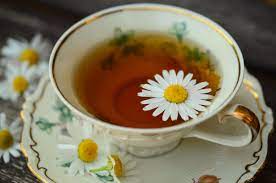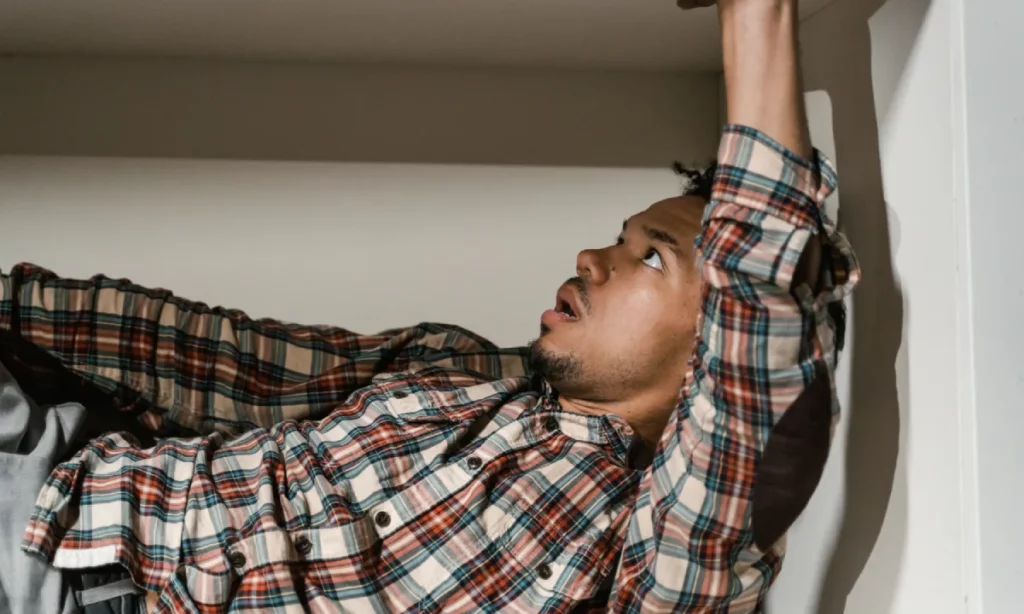Does the thought of being in tight, enclosed spaces make you feel uneasy? Feeling trapped or anxious in small, enclosed spaces? You’re definitely not alone in this. Claustrophobia, that uneasy feeling in small spaces, is pretty common. But hey, here’s some comforting news – it’s something you can absolutely overcome. We understand how tough it can be, and that’s exactly why we’ve put together some great natural remedies and handy tips to help you out and practical tips to help you break free from the grip of claustrophobia.
From soothing techniques to manage anxiety to strategies for handling panic attacks, we’ve got you covered. So, take a deep breath, and let’s embark on this journey together towards overcoming your fear of confined spaces.”
Contents
What Is Claustrophobia?
 Claustrophobia is an irrational fear of being confined in a small or enclosed space. It can cause feelings of intense anxiety, panic attacks, & other physical symptoms. People with claustrophobia often avoid certain situations where they may feel trapped, such as elevators, airplanes, crowded stores, & more. This disorder can be debilitating & cause a great deal of distress. In this blog post, we will discuss natural remedies for overcoming claustrophobia.
Claustrophobia is an irrational fear of being confined in a small or enclosed space. It can cause feelings of intense anxiety, panic attacks, & other physical symptoms. People with claustrophobia often avoid certain situations where they may feel trapped, such as elevators, airplanes, crowded stores, & more. This disorder can be debilitating & cause a great deal of distress. In this blog post, we will discuss natural remedies for overcoming claustrophobia.
How Natural Remedies Help Treat Claustrophobia?
Natural remedies can be a great way to treat claustrophobia. They are typically safe, low-cost, & easy to access. Natural remedies often focus on calming techniques such as meditation, yoga, breathing exercises, & journaling. Few activities help reduce anxiety levels & help people manage their fear of enclosed spaces more effectively. Additionally, natural remedies can be combined with traditional treatments such as cognitive behavior therapy & medications. These can be very effective in treating claustrophobia.
12 BEST Natural Remedies For Claustrophobia

Here are some of the most common natural remedies for claustrophobia:
Stay Active
Exercise releases endorphins which can help reduce stress & anxiety. Physical activities like running, swimming, or biking can be great options for people with claustrophobia. This can also help distract you from anxious or fearful thoughts.
Relaxation Techniques
Practicing relaxation techniques such as deep breathing & progressive muscle relaxation can help reduce feelings of anxiety. This is especially useful when feeling overwhelmed in an enclosed space. Grounding techniques such as focusing on an object or repeating a phrase can also help calm oneself down.
Mindfulness Meditation
Mindfulness meditation helps to focus on the present moment & observe thoughts & feelings without judgment. This can help to reduce stress & anxiety in claustrophobic situations. In meditation, you can focus on your breath & be aware of what is happening in your body.
Music & Art Therapy
Listening to music or creating art can be a great distraction from anxious thoughts. It can also help to express emotions positively. Music therapy can help to reduce stress & anxiety in claustrophobic situations.
Aromatherapy
Essential oils such as lavender, chamomile, & sandalwood can be used to help reduce feelings of stress & anxiety. Simply inhaling the oil can be beneficial for some people with claustrophobia. Lavender oil, in particular, is known to have calming & soothing effects.
Herbal Remedies
Herbal remedies such as kava, valerian root, & passion flower can help to reduce stress & anxiety. These herbs are generally considered safe but should always be taken under the advice of a healthcare professional. Some supplements such as magnesium can also help to reduce feelings of stress & anxiety.
Distract Yourself
Distraction techniques are a good way to cope with claustrophobia. This can include counting objects, focusing on your breathing, or playing games. In this way, you can take your mind off the anxious thoughts & focus on something else.
Avoid Alcohol, Caffeine, Or Drug Abuse
Using alcohol, caffeine, or drugs to cope with anxiety can be very dangerous. These can increase feelings of anxiety & make it harder to manage claustrophobic situations. It is important to seek help from a medical or mental health professional if these substances are used to cope.
A Healthy Diet

Eating healthy is important for overall well-being & can help to reduce feelings of stress & anxiety. Eating foods like fruits, vegetables, whole grains, & lean proteins can help to increase energy levels & reduce symptoms of claustrophobia. Foods that include Omega-3 fatty acids, magnesium, vitamin B, & probiotics are beneficial in reducing anxiety.
CBD Oil
CBD oil is increasingly being used to help with mental health conditions such as anxiety & depression. It is known to be calming & can help reduce feelings of stress & anxiety. However, it is important to consult a doctor before taking CBD oil as it can interact with certain medications.
Journaling
Journaling can be a great way to express emotions & reduce stress. Writing down thoughts & feelings can help to manage claustrophobic situations more effectively. It can also be used to track progress & provide a sense of accomplishment.
Acupuncture
Acupuncture is a traditional Chinese medicine that uses thin needles to stimulate certain areas of the body. It can help to reduce stress & anxiety levels by regulating the body’s energy flow. It is becoming increasingly popular as a natural remedy for anxiety & other mental health conditions.
These are just a few of the many techniques & remedies available for managing claustrophobia. It is important to consult a health professional before trying any of these methods, as they may not be suitable for everyone. The more tools you have in your toolbox, the better prepared you will be to manage this condition. With commitment, patience, & support from family & friends, anyone can learn to cope with claustrophobia.
Is Claustrophobia A Lifelong Condition?
No, claustrophobia is not necessarily a lifelong condition. With the right help & support, people can learn to manage their symptoms & live a normal life. It is important to remember that this condition is treatable with the right approach. Through therapy, lifestyle changes, & other remedies, it is possible to overcome claustrophobia & feel more in control of one’s life.
Conclusion
Claustrophobia can be a difficult condition to manage but several strategies can help. Mindfulness meditation, music, art therapy, aromatherapy, herbal remedies, distracting yourself, avoiding alcohol or drug abuse, & having a healthy diet & journaling are some of the ways claustrophobia can be managed. Additionally, CBD oil & acupuncture may also help reduce stress & anxiety levels. It is important to consult with a medical or mental health professional if symptoms persist or worsen. With the right tools & support it is possible to manage claustrophobic situations more effectively.
For more information, please contact MantraCare. Anxiety is a common mental health condition characterized by persistent feelings of worry, fear, & apprehension. If you have any queries regarding Online Anxiety Counseling experienced therapists at MantraCare can help: Book a trial Anxiety therapy session
FAQs About Claustrophobia
- What is the root cause of claustrophobia?
The exact cause of claustrophobia is not universally agreed upon, but it’s often linked to a traumatic event or conditioned response. Some people develop claustrophobia after experiencing or witnessing a distressing event in a confined space. Genetic factors and brain chemistry may also play a role. - Is claustrophobia a mental illness?
Claustrophobia is classified as an anxiety disorder, which is a type of mental health condition. It involves an irrational fear of being in enclosed or confined spaces, causing significant anxiety and distress. - What is the best treatment for claustrophobia?
The most effective treatment for claustrophobia typically involves a combination of therapy and self-help strategies. Cognitive-Behavioral Therapy (CBT) and Exposure Therapy are commonly used. In some cases, medication may also be prescribed to manage symptoms. - Can claustrophobia be caused by stress?
While stress itself does not cause claustrophobia, it can exacerbate the symptoms. High stress levels can make a person more susceptible to anxiety and panic, which can intensify the fear and discomfort associated with claustrophobia. - How do you overcome claustrophobia in an elevator or on a long flight?
Overcoming claustrophobia in situations like elevators or flights involves gradual exposure and relaxation techniques. Start by exposing yourself to the feared situation in a controlled manner, and use deep breathing or mindfulness to manage anxiety. Over time, these exposures can help reduce the intensity of your fear. Additionally, seeking the guidance of a therapist can provide more tailored strategies for these specific scenarios.


